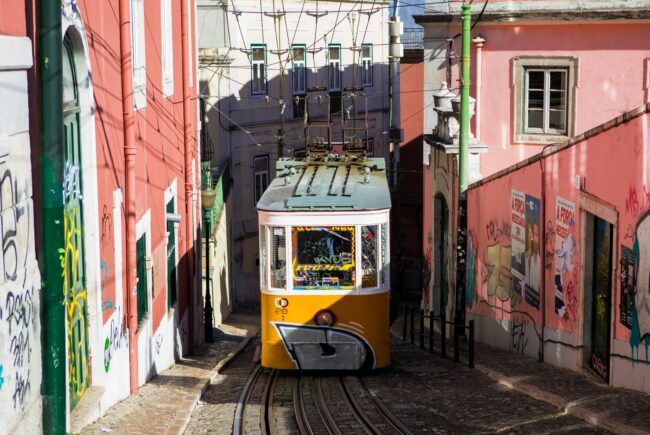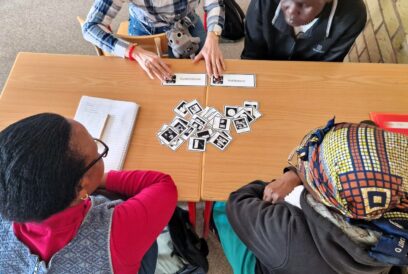

Around 300 Qualifica centres in Portugal aim to improve the qualification levels of adults as well as facilitating their employment.
Around 300 Qualifica centres in Portugal aim to improve the qualification levels of adults as well as facilitating their employment.
Qualifica centres are state-supported validation and qualification centres for adults. The results are promising, as the example of Azambuja’s Qualifica centre shows.
There is an issue in Portugal: the population of the country has low levels of education. According to Eurostat (2016), over half the adult population (between 25 and 64 years) has completed only basic education, the 9th grade.
In order to tackle the issue, in 2016 the government launched a programme called Qualifica, which aims to improve the qualification levels of adults as well as facilitating their employment.
The concrete work takes place in a network of Qualifica centres, which in 2016 replaced an earlier system called Novas Oportunidades (New Opportunities), extinct in 2013. There are currently around 300 centres in Portugal.
One of them is located in Azambuja, about 50 kilometres and 40 minutes’ train ride away from Lisbon. That’s where Géraldine Pereira da Silva works as an ORVC technician. Her role consists of the whole process, starting from enrolment and diagnosis of each adult all the way to developing recognition and validation processes.
“The people who seek Qualifica centres are heterogenous – young, not so young; employed, unemployed; Portuguese, foreigners; men and women. What they share is the experience of being received with open arms,” says Silva.
Most of the people who come to Azambuja’s Centro Qualifica aim to improve their soft skills in order to have a better position at the labour market, she explains. Some are already employed but want to finish their formal education for personal reasons, and some have higher education degrees but want to gain new skills.
For Silva, it is clear that the Qualifica centres have a significant impact on those who enrol. While the question of employment is important, Silva considers that one of the principal targets is to value people as individuals. “The positive impact is felt in the whole Portuguese community,” she says.
Tools for validation and recognition
The objectives of the programme include that by 2020, 50% of the population will have finished secondary education (12th grade), and that 40% of people aged between 30 and 34 years will have a higher education degree. How will this be done?
Besides offering training and education, the programme has two important tools: the Qualifica passport and a process called RVCC (recognition, validation and certification of skills). The latter allows adults with vast experience to validate the skills and knowledge they have gained, Silva explains.
The Qualifica passport is a tool for registering the attendees’ individual path in terms of education and qualifications. It also includes information regarding the areas of interest of the passport holder. This way it is possible to sketch alternative paths to gain new qualifications or to continue professional training, for example.
“This process is transformative for the adults,” Silva says. “They gain consciousness of their skills, their knowledge and the value of their life paths and they become agents of change in their own lives, defining objectives and seeking to fulfil them.”
Validation motivates for further studying
One of the students at Azambuja’s Qualifica centre is Lucinda Monteiro. From Angola, Portugal’s former colony, she finished her 12th grade last year at the age of 60. Monteiro says that attending the course had a strong positive impact on her life and she praises the support she received from Silva and other trainers. Monteiro’s next objective is to enter university.
It’s also common for the adults who arrive at Azambuja’s Qualifica centre for validation of their competences to decide to participate in some kind of training or course offered by the centre, says Silva.
She gives the example of a person who completed 9th grade through the RVCC process and then decided to go on to complete 12th grade, and later on is planning to attend professional training in the area of logistics offered by the centre.
Silva also knows how the trainees progress afterwards. “Due to the close relationship we develop with the adults, we always end up hearing about their further education paths following the training process here in our centre,” she says.
As an example, she mentions a hair dresser and aesthetician who dreamed of studying dentistry. She finished 12th grade through recognition of her skills, and the following year she enrolled in a course of dental medicine.
“These are cases of success that we are very proud of,” she says and quotes the famous Brazilian philosopher of education, Paulo Freire: “Education doesn’t change the world. Education changes people. People change the world.”
Author







